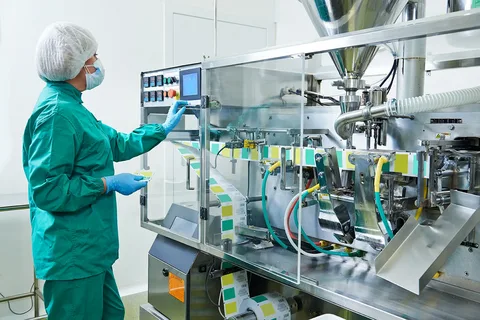Counsellors are now more aware than ever of the devastating effects that major life events can have on relationships. That’s why, according to the Australian Psychological Society (APS), family therapy came into practice 60 years ago. Therapy or Family Counselling Benefits is an effective treatment method used to resolve internal familial issues. A study published by the Australian Department of Health reports that 98% of families who received Multisystemic Therapy (MST) successfully completed treatment.
MST and other therapy methods are thus successful at combating problems within families, as they improve communication between family members. To learn more about family counselling benefits, continue reading.
Table of Contents
What is Family Counselling?
Family counselling is targeted toward improving relationships in family systems. According to the APS, the family is a social subsystem that offers more support and stability than the general social structure.
This system establishes the roles of certain family members. Misplaced power dynamics and a lack of communication can offset a family unit’s healthy functioning and balance.
The APS thus concludes that a therapist acts as a moderator to facilitate open conversation between family members. A family counsellor coaches families through conversation and plans of action to enact positive change.
7 Family Counselling Benefits
Because humanbehaviour often works in patterns, family therapy is necessary to break unhealthy cycles passed on by our parents. Families that complete counselling rely less on health services and experience improved relationships.
Let’s discuss the seven top family counselling benefits.
1. Improved and Open Communication
As problems within families grow, they can cause a rift between family members. Such distance discourages open communication of the issues, thus causing the separation to grow bigger.
Family counselling works by allowing a third party to monitor different members’ functions within the unit. Your therapist can then bridge the gap of uncomfortable conversation and help all members feel acknowledged.
As families work through conflict together, the communication rift between them shrinks. Only after healthy communication is it possible to begin the process of healing.
2. Learn Healthy Conversation Skills
Healthy communication skills include both speaking and listening. When communicating with your family members, it is essential to practice healthy communication structures and think before responding.
Family counsellors teach healthy communication, such as using or avoiding connotative language (words and phrases that signify more than just their literal meaning). Therapists can also model other forms of healthy communication, such as the sandwich method and “I feel” statements.
Verbal communication, positive body language, and active listening are all critical to maintaining healthy communication. A family therapist can guide your family unit through how to perform all three in and out of the office.
3. Develop Coping Skills, Together
As much as we want to protect ourselves and our children from harm, life happens. Everyone has a different reaction when handling upsetting events, such as a divorce or the death of a beloved family member.
Getting professional help to work through significant life changes, grief, or trauma can greatly enhance your relationship with your family. Expressing such raw emotions healthily is difficult, but a counsellor can guide the whole family through it together.
Children also learn by modelling. If you establish and demonstrate suitable coping mechanisms for them while they are still young, they are more likely to internalise these healthy habits when they build their own family.
4. Boost Both Physical and Mental Health
Your home should take the role of a sanctuary where you can relax after a stressful day. When you and your family have problems, home becomes another stressor in your lives.
To create a peaceful environment at home, all family members must commit to identifying and dealing with issues together. After everyone feels heard and acknowledged, you establish a harmonious home, thus enhancing the mental and emotional wellbeing of all involved.
Having stable mental health thus naturally improves physical health. Mental exhaustion can precipitate physical exhaustion, while mental stability encourages healthy physical behaviours.
5. Increase Child-Parent Conversation
According to the Australian Institute of Family Studies, having a safe home and stable relationship with parents is one of the most significant contributing factors for a child’s future success. Open communication is essential to creating stability in a family unit.
Parents demand respect from their children, while children need parents to acknowledge them. Adolescents tend to find difficulty expressing emotions. If any of these roles are not honored, it can create a rift between family members.
It is important to remember that your child is in a different developmental stage than you. Poorly communicating your feelings or cutting them off can be devastating. One of the most significant benefits of family counselling is a safe space to put yourself in your family member’s shoes. That’s why experts recommend getting a family counsellor to improve communication.
6. Work through Premarital Issues
Working through premarital concerns is another form of family therapy that you should prioritise. Marriage and family therapists are experts in discussing uncomfortable and complex issues that couples may face during marriage.
Premarital counselling can provide advice about finances, children, conflict management, beliefs, and roles within marriage. According to the AAMFT, starting a marriage with this type of counselling sets your relationship up for success.
Not only do couples improve their communication skills through counselling, but they also open the opportunity for future therapy should the need arise. It is also important to lay everything on the table before committing to something as serious as marriage, good, bad, or ugly.
7. Enhance Your Quality of Life and Happiness
Having a healthy and happy family means enhancing your overall quality of life. The more comfortable and happy you and your family members are together, the more you can strengthen bonds and focus on making good memories together.
Being surrounded by both technology and a global pandemic has impacted how we interact with each other and internalise problems. A therapist can guide your family back to a healthier place and open a path to having a happier life.
Do I Need to Start Counselling with My Family?
Family counselling benefits outweigh the disadvantages. If you’re thinking about seeking out a counsellor, go for it!
You can always try out a couple of sessions and stop if you don’t believe it benefits your family. The worst that a therapist can do is teach you and your family members how to communicate better among yourselves.
We highly recommend starting family counselling if you have noticed increased communication issues within your household. Family therapy is also indispensable during upsetting or traumatic events, such as divorce or the passing of a loved one.











